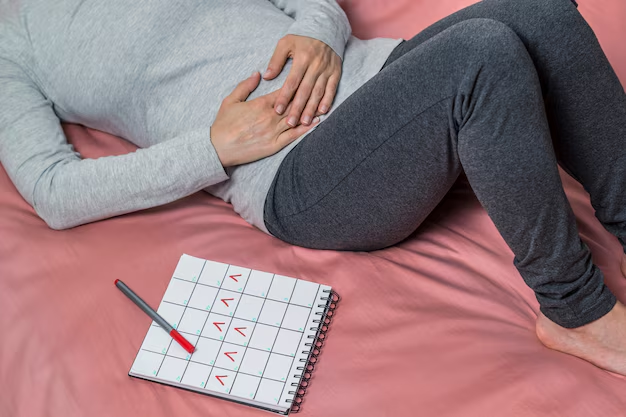Your Guide to What Is Urge Incontinence
What You Get:
Free Guide
Free, helpful information about Incontinence FAQ and related What Is Urge Incontinence topics.
Helpful Information
Get clear and easy-to-understand details about What Is Urge Incontinence topics and resources.
Personalized Offers
Answer a few optional questions to receive offers or information related to Incontinence FAQ. The survey is optional and not required to access your free guide.
Understanding Urge Incontinence: What You Need to Know
Imagine being in a public setting and suddenly feeling an overwhelming urge to urinate. Urge incontinence can create this challenging scenario for many individuals. It is a type of urinary incontinence characterized by a sudden, intense need to urinate, followed by an involuntary loss of urine. Unlike stress incontinence, which occurs from physical movements like coughing or sneezing, urge incontinence tends to happen without warning. This condition can impact people of all ages, although it becomes more prevalent with age.
Recognizing the Symptoms
Urge incontinence comes with a variety of telltale signs. If you're unsure whether this condition affects you or a loved one, consider the following symptoms:
- Frequent urination: Needing to urinate more often than usual.
- Nocturia: Waking up multiple times at night to urinate.
- Sudden urge: Feeling a sudden, uncontrollable need to urinate.
- Urine leakage: Involuntary loss of urine before reaching the restroom.
These symptoms can often hinder one’s daily life and cause considerable distress or embarrassment, prompting many to seek help.
Causes and Risk Factors
Understanding what causes urge incontinence is crucial in addressing its management. Some common causes include:
- Overactive bladder muscles that lead to involuntary contractions.
- Bladder infections or conditions like cystitis.
- Diseases such as diabetes and Parkinson’s.
- Neurological disorders or spinal cord injuries.
- Certain medications that increase urine production or bladder activity.
Seeking Treatment and Support
The good news is that urge incontinence is manageable. Treatment often combines lifestyle changes, medications, and sometimes surgery. Here are some common approaches:
- Lifestyle modifications: Limiting caffeine and alcohol, managing fluid intake, and timed voiding (urinating on a schedule) can help manage symptoms.
- Pelvic floor exercises: Also known as Kegel exercises, these can strengthen pelvic muscles and support bladder control.
- Medications: Drugs that relax bladder muscles can be effective.
- Nerve stimulation: Some therapies stimulate nerves to improve bladder function.
- Surgery: In severe cases, surgical interventions may be considered.
Support is available through healthcare services, but access to treatment varies, particularly when factoring in financial considerations.
Exploring Financial and Educational Resources
Managing a health condition like urge incontinence can come with associated costs. However, various financial assistance programs and resources can help ease these burdens, making it essential to explore your options:
- Government Aid Programs: Medicaid and Medicare may cover certain treatments or medications for urge incontinence.
- Non-profit Organizations: Groups like the National Association for Continence offer support and information.
- Insurance Options: Review what your health insurance plan covers and explore alternatives if needed.
- Educational Grants: If you're studying healthcare or related fields, specialized educational grants might be available at universities focusing on elder care or gerontology.
- Credit Solutions: Consider flexible health credit plans to manage out-of-pocket expenses efficiently.
Navigating the Resources You Need
When facing urge incontinence, knowing where to turn for support can be empowering. Here are some valuable resources to consider:
- 🏥 Healthcare Programs: Explore Medicare/Medicaid for coverage.
- 📚 Educational Grants: Discover funding for healthcare studies.
- 💳 Credit Solutions: Flexible payment plans for healthcare costs.
- 🤝 Non-Profit Support: Community and national organizations can provide assistance.
Remember, addressing urge incontinence requires not only medical attention but also understanding the broader resources available to you. By combining medical solutions with strategic financial planning and educational opportunities, managing incontinence can become a more manageable task.
What You Get:
Free Incontinence FAQ Guide
Free, helpful information about What Is Urge Incontinence and related resources.

Helpful Information
Get clear, easy-to-understand details about What Is Urge Incontinence topics.

Optional Personalized Offers
Answer a few optional questions to see offers or information related to Incontinence FAQ. Participation is not required to get your free guide.


Discover More
- a Patient You Are Caring For Uses Incontinence Briefs
- Are Incontinence Products Tax Deductible
- Are Incontinence Supplies Covered By Medicare
- Are Incontinence Supplies Tax Deductible
- Can a Bladder Infection Cause Urinary Incontinence
- Can a Kidney Stone Cause Incontinence
- Can a Urinary Tract Infection Cause Incontinence
- Can a Uti Cause Incontinence
- Can Constipation Cause Incontinence
- Can Constipation Cause Urinary Incontinence
